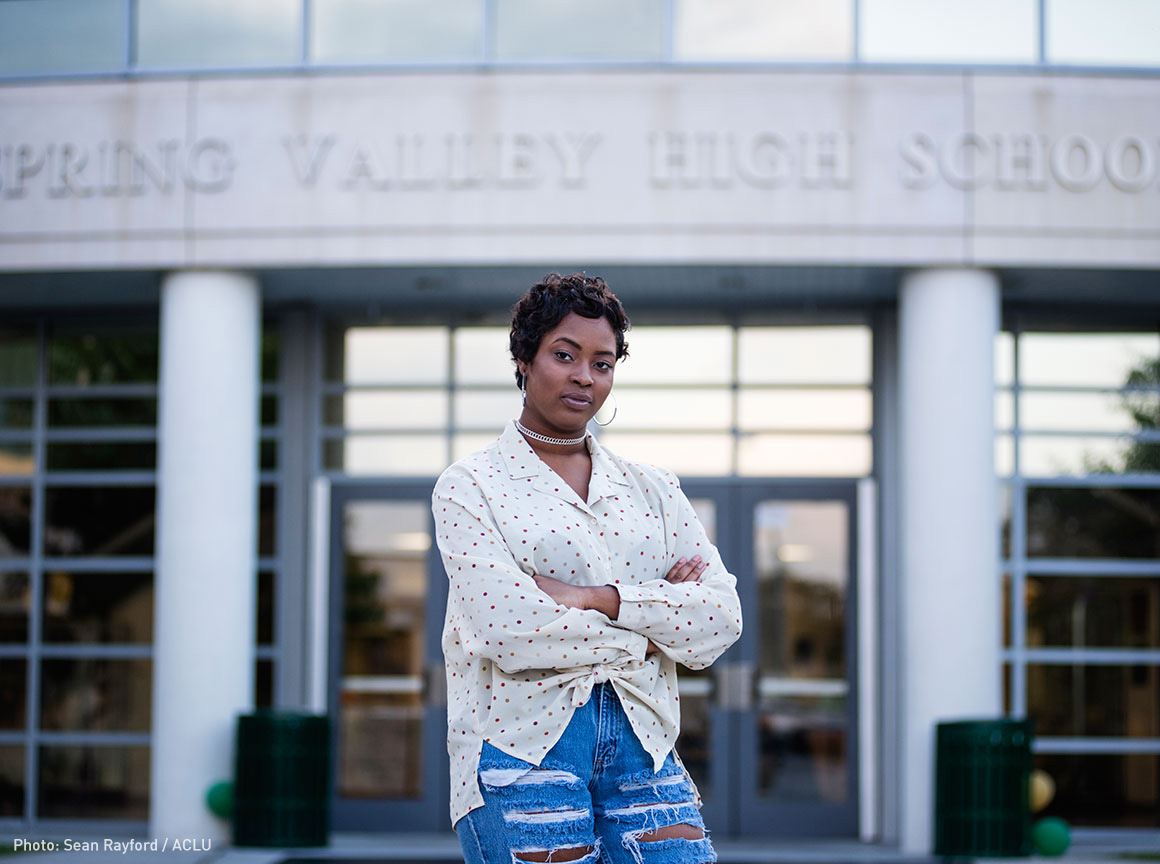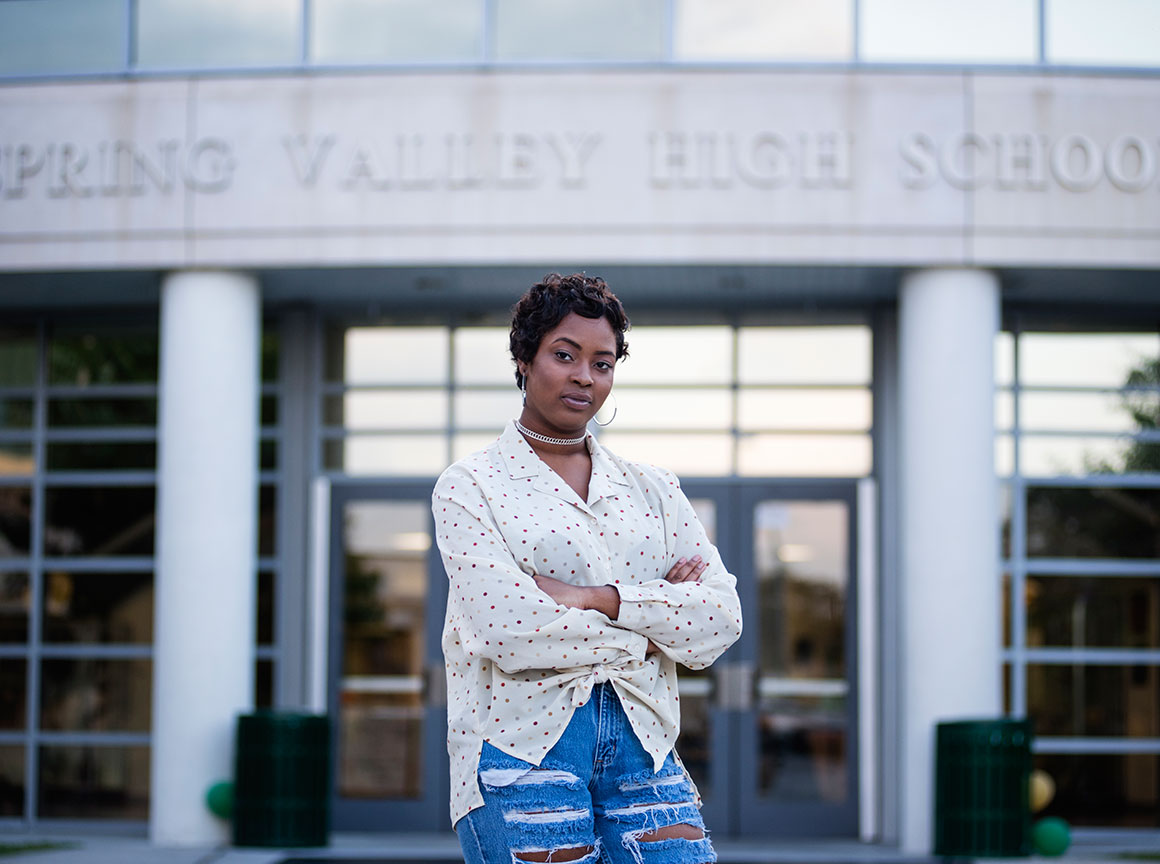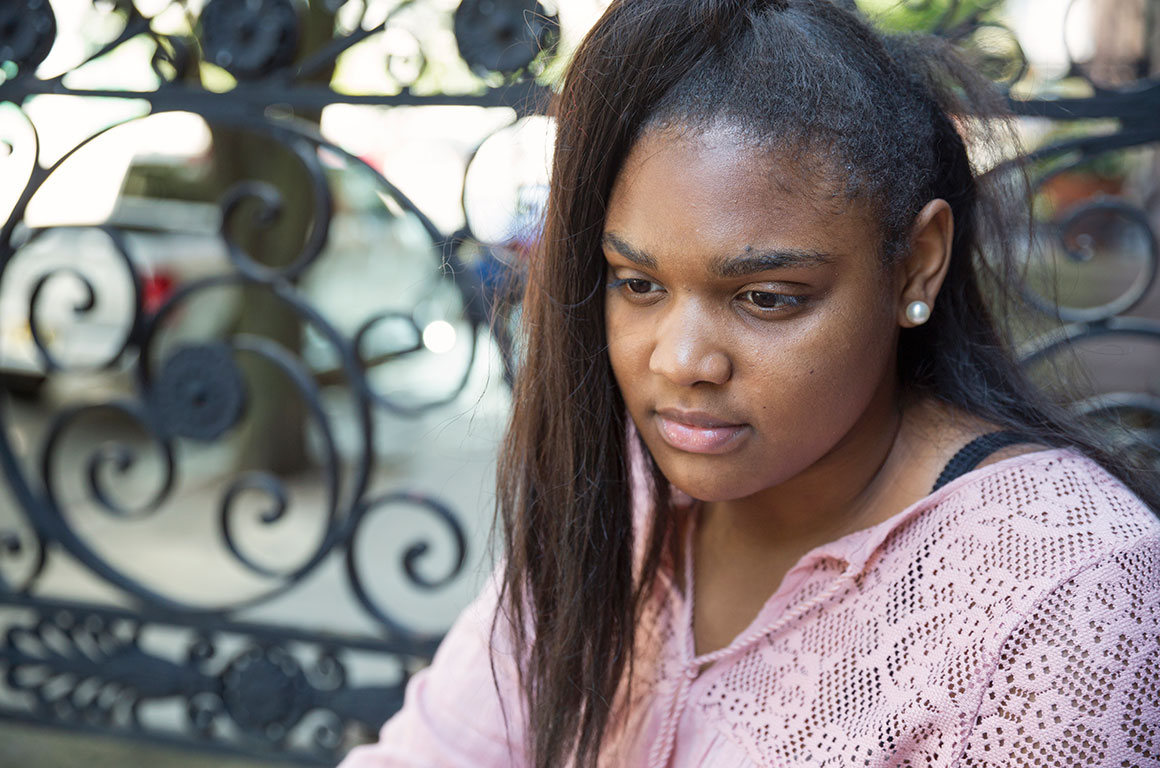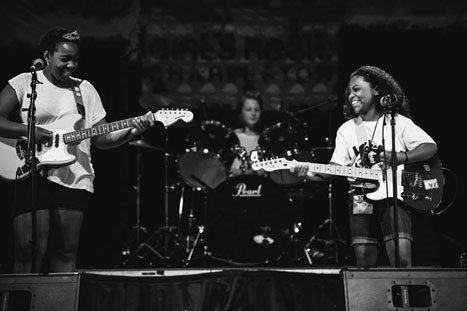
CYAP v. Wilson
What's at Stake
The American Civil Liberties Union filed a federal lawsuit challenging South Carolina’s “disturbing schools” and “disorderly conduct” laws. The laws allowed students in school to be criminally charged for normal adolescent behaviors including loitering, cursing, or undefined “obnoxious” actions on school grounds and encouraged discriminatory enforcement against Black students and students with disabilities. The Fourth Circuit Court of Appeals affirmed the district court ruling that enforcing these laws against students was unconstitutional, affirming that subjecting students to criminal penalties under such vague rules interferes with their education and their future, and produces stark racial disparities. This decision should be instructive to the many school districts across the country where students continue to be charged with ‘disorderly conduct’ and similar vague crimes.
Summary
The ACLU found that hundreds of students — some as young as 7 years old — were being charged under far-reaching and nebulous “disturbing schools” and “disorderly conduct” laws for behaviors such as loitering, cursing, or undefined “obnoxious” actions on school grounds. The statutes also had a chilling effect on students who spoke out against policing abuses in schools. Black girls and boys were nearly four times as likely to be targeted under the law.
The ACLU challenged the statues on grounds they violate the U.S. Constitution’s due process protections. The complaint, Kenny v. Wilson, was filed in the U.S. District Court of South Carolina.
Our plaintiffs included:
- Niya Kenny, 19, a former student at Spring Valley High School in Columbia. As a student, she witnessed a violent, headline-grabbing altercation in her classroom when a school resource officer flipped a classmate over her desk and dragged her across the room. Kenny, who is African-American, spoke up against the officer’s actions. She was arrested and hauled off to a detention center.
- Taurean NeSmith, 21, an African-American student at Benedict College in Columbia, was arrested because he criticized a police officer for racial profiling during the stop of a fellow student.
- S.P., 15, a white student with behavioral and emotional disabilities at Travelers Rest High School in Greenville, was charged with a crime after failing to comply with instructions to leave the school library and cursing at a student who was making fun of her.
- D.S., 17, an African-American student who has learning disabilities and a heart condition at Stall High School in Charleston, was charged with disturbing school after a minor physical altercation. In the adult criminal justice system, she faced possible detention for her inability to pay fines and fees.
- Girls Rock Charleston, a nonprofit organization that provides mentorship, music and arts education, and leadership development to young people in Charleston. Girls Rock operates an afterschool program serving at-risk youth and youth who have been involved in the criminal justice system.
On February 23, 2023, the Fourth Circuit Court of Appeals upheld a lower court decision that South Carolina “disturbing school” laws were unconstitutional, reaffirming that subjecting students to harsh criminal penalties interferes with their future in education and contributes to racial disparities.
The laws failed to provide students notice of what behaviors might expose them to criminal charges and lacked sufficient safeguards to prevent arbitrary or discriminatory enforcement. These laws were enforced in a grossly discriminatory way against Black students and students with disabilities.
This decision should be instructive to the many school districts across the country where students continue to be charged with ‘disorderly conduct’ and similar vague crimes.
Legal Documents
-
05/15/2017
Brief of Plaintiffs-Appellants -
05/17/2017
Joint Appendix -
03/15/2018
Opinion -
07/14/2017
Reply Brief of Plaintiffs-Appellants -
02/11/2022
Brief of Defendant-Appellant -
03/16/2022
Response Brief of Plaintiffs-Appellees -
03/21/2022
Amicus Brief of the Juvenile Defender Advocate -
03/23/2022
Amicus Brief of National Police Accountability Project -
03/23/2022
Amicus Brief of National Women's Law Center, The National Association for the Advancement of Colored People, National Disability Rights Network, National Center for Youth Law, and additional Advocacy Organizations -
04/18/2022
Reply Brief of Defendant-Appellants -
02/22/2023
Published Authored Opinion
Date Filed: 05/15/2017
Court: Appeals Court (4th Cir.)
Affiliate: South Carolina
Date Filed: 05/17/2017
Court: Appeals Court (4th Cir.)
Affiliate: South Carolina
Date Filed: 03/15/2018
Court: Appeals Court (4th Cir.)
Affiliate: South Carolina
Date Filed: 07/14/2017
Court: Appeals Court (4th Cir.)
Affiliate: South Carolina
Date Filed: 02/11/2022
Court: Appeals Court (4th Cir.)
Affiliate: South Carolina
Date Filed: 03/16/2022
Court: Appeals Court (4th Cir.)
Affiliate: South Carolina
Date Filed: 03/21/2022
Court: Appeals Court (4th Cir.)
Affiliate: South Carolina
Date Filed: 03/23/2022
Court: Appeals Court (4th Cir.)
Affiliate: South Carolina
Date Filed: 03/23/2022
Court: Appeals Court (4th Cir.)
Affiliate: South Carolina
Date Filed: 04/18/2022
Court: Appeals Court (4th Cir.)
Affiliate: South Carolina
Date Filed: 02/22/2023
Court: Appeals Court (4th Cir.)
Affiliate: South Carolina
-
08/11/2016
Complaint -
08/16/2016
Motion for Preliminary Injunction and Memorandum -
08/17/2016
Motion for Class Certification and Memorandum -
10/19/2016
Motion for Preliminary Injunction Reply Brief -
10/19/2016
Reply Memorandum of Law in Support of Plaintiffs' Motion for Class Certification -
11/28/2016
Statement of Interest of the United States -
02/24/2021
Opinion and Order Granting Plaintiffs' Motion for Class Certification -
07/23/2021
Memorandum of Law in Support of Plaintiff's Motion for Summary Judgement -
07/23/2021
Analytics Declaration -
10/08/2021
Opinion and Order Granting Plaintiffs' Motion for Summary Judgment
Date Filed: 08/11/2016
Court: District Court (D.S.C.)
Affiliate: South Carolina
Date Filed: 08/16/2016
Court: District Court (D.S.C.)
Affiliate: South Carolina
Date Filed: 08/17/2016
Court: District Court (D.S.C.)
Affiliate: South Carolina
Date Filed: 10/19/2016
Court: District Court (D.S.C.)
Affiliate: South Carolina
Date Filed: 10/19/2016
Court: District Court (D.S.C.)
Affiliate: South Carolina
Date Filed: 11/28/2016
Court: District Court (D.S.C.)
Affiliate: South Carolina
Date Filed: 02/24/2021
Court: District Court (D.S.C.)
Affiliate: South Carolina
Date Filed: 07/23/2021
Court: District Court (D.S.C.)
Affiliate: South Carolina
Date Filed: 07/23/2021
Court: District Court (D.S.C.)
Affiliate: South Carolina
Date Filed: 10/08/2021
Court: District Court (D.S.C.)
Affiliate: South Carolina
Press Releases
Fourth Circuit Rules that South Carolina Laws Allowing School Students to be Criminally Charged Were Unconstitutional
Federal Appeals Court Affirms Students’ First Amendment and Due Process Rights in School
ACLU Challenges South Carolina ‘Disturbing Schools’ Law







